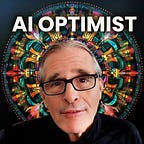The Silent Observer: AI’s Evolution Over the Past Decade
From the moment you wake up, you’re being watched, not by another person but by an invisible presence: algorithms powered by artificial intelligence (AI).
Over the past decade, the rise of AI has seen digital footprints become goldmines for large tech companies and governments.
For teenagers, especially, the allure of social media is undeniable. Beneath the surface of sharing, liking, and commenting are algorithms that record their interactions and influence perceptions and decisions.
There have been numerous cases of governments buying and selling data. This data, if taken directly, would violate numerous privacy laws. Yet, the first wave of AI has opened a backdoor for such transactions.
The AI behind our screens is adept at creating addictive experiences and curating content trapping people in ‘echo chambers.’ This dramatically limits exposure to diverse views, making the digital experience less enriching.
Reimagining Privacy with HarmonAI:
Ushering in a New Dawn
Picture a world where technology doesn’t peek over your shoulder but shields you from prying eyes. Where AI acts like a friendly companion, guiding and assisting us? Let’s capture that vision with an idea called HarmonAI!
Remember the First Wave?
The pioneering days of AI brought unparalleled convenience. Your phone knew the nearest pizza place, and your smart speaker played your favorite tune before you even asked.
But at what cost? Every click, every pause, every search—tracked, stored, and analyzed. It seemed like a fair trade-off, right?
What if AI could still offer that convenience without compromise?
HarmonAI:
A Fresh Start with AI Privacy Serving People First
Imagine an AI so advanced it understands the value of discretion. Instead of whispering your secrets into the vast databases of big tech companies, it safeguards them like a loyal friend.
This AI doesn’t sell you out to advertisers or let governments peek into your daily routine. Instead, it stands guard, ensuring your digital world is yours.
Imagine HarmonAI: Emphasizing harmony between humans and machines. Protecting your privacy.
Unleashing Your Potential
Have you ever hesitated to search for something, fearing it might lead to unwanted ads or expose you to surveillance?
What if you never had to feel that way again? With AI putting people first, we can re-explore the vast oceans of the internet without hesitation.
How many more innovations, connections, or aha moments await in such a liberated world?
Pop Quiz: What would you do if...
· Your AI could make recommendations without storing your personal data?
· You could confidently discuss sensitive topics, knowing your conversations aren’t being monitored or sold?
· Your digital actions led to personal growth without any external entity knowing without your permission?
Reimagine Privacy
Now, think of more than just individual benefits. Consider a society where privacy is not an afterthought but a fundamental layer.
Schools integrate AI tools without risking student data.
Healthcare utilizes AI-driven predictions while preserving the safety of personal health information.
The possibilities are endless and positive.
The Future is Ours to Control
The initial wave of AI got privacy wrong. We have the tools, the expertise, and the motivation to reshape that narrative.
Let’s redirect our focus toward a people-first approach. We’re not just regaining privacy but crafting a digital future that aligns with human values.
In this vibrant new era, the question isn’t,
“What data are we willing to give up?” but rather,
“How can technology amplify the best of humanity without any compromises?”
Journey together into this inviting future where AI respects our privacy and celebrates and safeguards it.
Are you on board?
Charting New Horizons with AI: Progress Over Preferences
“Without deviation from the norm, progress is not possible.”
— Frank Zappa
Finding uncharted territories, fresh ideas, or even confronting opposing viewpoints is challenging in a world dominated by algorithms that thrive on past behaviors and comfort zones.
What if the future of AI is geared not to echo back preferences but to propel us toward unexplored potentials and paths?
Four User-First Approaches to Privacy:
Consent-Led Data Sharing: Before any application or service accesses data, it must specify why it needs the data and how it will be used. We grant permissions based on this clarity, ensuring we’re always in control.
Privacy Profiles: Just like we have different profiles for work, gaming, or browsing, we can set other ‘Privacy Profiles.’ For instance, a ‘Shopping’ profile might share preferences and sizes for better product recommendations. A ‘Browsing’ profile might restrict almost all personal data.
Data Lifespan Settings: Allow us to set expiration dates on data. For instance, if you visit a website to buy a gift, set the data (like browsing history and product searches) to “expire” or auto-delete after 24 hours, ensuring temporary actions don’t influence long-term recommendations.
Transparent AI Reporting: Whenever AI processes data to make a recommendation or decision, we can view a report of which data points influenced that AI decision. This allows us to better understand how data is being used and even correct AI if it’s working off of wrong assumptions.
The New Age of Data Reckoning is Here
With tailor-made systems and principles in place, we can usher in an era where AI and privacy coexist, delivering on the promise of tech advancements without compromising individual rights.
3 Immediate Ways to Protect Consumers:
Legislative Checks: Governments should enact strict legislation ensuring transparency in how AI algorithms collect, process, and use data. Fines should be hefty for companies or entities found in violation.
Educate the Masses: Education programs about AI’s impact should be widespread. Everyone must know how AI affects their daily lives, especially impressionable teens, from schools to community centers.
Opt-out Mechanisms: Every platform using AI algorithms should provide users an easy option to opt out. This would mean that we choose to not have data used for anything beyond the primary service we signed up for.
The Tangled Web of AI: Solutions for a Safer Digital Future
To ensure that AI serves us rather than the other way around, here are possible solutions:
Open-source AI Ethics: All AI algorithms, especially those touching the public sphere, like social media, should be open-sourced. This promotes transparency and allows independent experts to scrutinize and call out biases or harmful practices.
Break the Echo Chambers: Platforms should consciously develop algorithms that promote diversity in content rather than mere confirmation of pre-existing beliefs. This could be done by mixing content from different sources or perspectives, ensuring a more rounded digital experience.
AI Watchdogs: Appoint independent AI watchdogs who regularly audit the algorithms of tech giants, ensuring they aren’t being tweaked to induce addiction, misinformation, or any other harmful behavior.
Empower the User: We can adjust the aggressiveness of the algorithms. If someone feels like they’re getting too much of the same content, they simply dial back the algorithm’s influence.
Universal Data Rights: Create a universal declaration of digital rights, ensuring every individual’s right to their own data. This would mean governments and corporations need explicit consent to use anyone’s data, closing backdoors and gray areas in data collection.
The path of AI is undeniably intertwined with the future of humanity.
As AI continues to evolve and influence every aspect of our lives, it’s essential to understand the challenges, navigate them wisely, and ensure that we, as a society, don’t become mere data points in some algorithm.
We must always be the ones in control.
Opt-In AI: Ensuring Privacy as the Default, Not the Exception
1. Fundamental Right to Privacy: The inalienable right to privacy is at the heart of the argument for an opt-in AI. Historically, humans have always valued their personal spaces and private lives. In the digital age, this translates to data privacy. If data is the new oil, then our personal data is akin to our reserves. Access to it should not be granted by default.
2. Consent over Assumption: An opt-out system inherently assumes consent. It presumes everyone is okay with using their data unless they say otherwise. This is a flawed premise, especially when many may need help understanding the impact of these default settings or may miss the seemingly hidden opt-out option.
3. Restoring Trust in Technology: Data breaches, misuse of personal data, and other controversies erode public trust in tech giants. Moving to an opt-in system signals respect for our privacy and restores faith in the industry.
How to Automatically Protect Your Data:
The Unrealised Power of Anonymization and Tokenization
Local Data Anonymization and Tokenization:
How It Works:
Upon any data creation or capture on a device, the data is immediately anonymized locally, ensuring original personal identifiers are stripped off.
Post-anonymization, a unique token is generated for this data, which acts as a placeholder or reference without carrying any personal information.
When the data is requested by any application or service, only the tokenized version is shared.
Dynamic Action-Based Token Generation:
How It Works:
For every action, a new, temporary token is generated. This token doesn’t contain identifiable information but represents the action or preference for that specific instance.
Like a session ID, it expires after its purpose is served. For instance, if you search for “best running shoes,” a token representing “interest in sports footwear” might be generated and sent to ad networks or recommendation engines. Your identity and the exact search would remain unknown.
Decentralized Privacy Networks (DPN):
How It Works:
Similar to how VPNs route traffic through different servers, DPNs route data requests through multiple peer devices in a network.
Before data is routed, it’s anonymized and tokenized. By the time it reaches its destination, it’s been through several ‘hops,’ making it extremely difficult to trace back to the origin.
As there’s no centralized server, there’s less vulnerability to hacking or centralized data collection.
Redefining AI’s Role: A Personal HarmonAI
Imagine an AI that primarily resides on your device, works for you and is designed to enrich your life rather than serve ads.
1. Personalized Content without Privacy Invasion: With access to your local data, this AI can curate content - from news articles to music playlists - based on your interests. All this without sending your data to a remote server or selling it to the highest bidder.
2. Learning and Growth: Instead of showing content that keeps you scrolling mindlessly, an AI designed for personal enrichment could suggest educational materials, tutorials, or even trivia based on user interests. It could remind you of long-term goals or hobbies you’ve neglected, helping you become the best version of yourself.
3. Improved Productivity: The AI can analyze your work habits, providing insights into your most productive hours and tasks that take up most of your time or suggesting breaks when it detects decreased efficiency. This transforms AI into a tool for personal betterment rather than a distraction.
4. Offline Functionality: An AI operating primarily on a device doesn’t need constant internet connectivity. It can function offline, ensuring users get recommendations, reminders, and insights even in areas with poor connectivity.
5. Diverse Monetization Opportunities: Instead of relying on an ad-driven revenue model, companies can monetize such AI agents through premium features, direct sales, or even by offering specialized training packs (like a productivity booster, language learning assistant, etc.)
The digital landscape has, for too long, been dominated by an ad-centric approach, often at the expense of user privacy and well-being.
Making AI an opt-in service ensures privacy is respected by default. By reimagining AI as a personal agent focused on enrichment, we can harness its potential in a manner that genuinely benefits us and society.
HarmonAI 2030: Your Personal Growth Catalyst
Imagine waking up to a virtual assistant, HarmonAI. Instead of scheduling your day or reminding you of tasks, she’s there to challenge, enlighten, and foster personal growth.
1. Morning News Recap: Alongside the usual headlines, HarmonAI curates a news story from a source you wouldn’t typically read. “Here’s an opinion piece from ‘Global Perspectives,’ a source you haven’t interacted with. Thought it might offer a fresh viewpoint,” she suggests.
2. Lunchtime Learning: Instead of your favorite podcast about tech innovations, HarmonAI proposes, “How about a dive into classical European history today? It might give you fresh perspectives for your tech presentation next week.”
3. Evening Reflections: You plan to watch a movie after dinner. “I’ve shortlisted a foreign film that’s critically acclaimed. It might be a different flavor from your usual choices, but it offers a new cultural perspective,” she offers.
In this scenario, HarmonAI acts on two primary principles:
Broadening Horizons: Instead of capitalizing on your comfort zones, HarmonAI constantly challenges your choices. This doesn’t mean ignoring your preferences but weaving in variations to provide a broader perspective.
Feedback and Growth: After each suggestion, HarmonAI. asks for feedback, not to recalibrate to your comfort zone but to understand your level of intellectual and emotional stretch. “Did the foreign film feel enlightening or just confusing?” Based on your feedback, HarmonAI might suggest an intermediate film, ensuring growth without overwhelming you next time.
Breaking the Echo Chambers
HarmonAI’s underlying code is designed differently. Unlike her predecessors, the primary function isn’t to maximize screen time or promote addictive behavior.
Instead, her North Star metric is the “Personal Growth Index.” This means:
Intellectual Diversity: Pushing us to explore diverse topics, fostering a more well-rounded worldview.
Emotional Resilience: Recommending content that provokes thought, confronts biases, and challenges existing beliefs.
Skill Advancement: Proactively suggesting courses, readings, or tutorials that help us venture into new territories.
For users seeking insights, HarmonAI provides a monthly growth report.
“In August, you explored three new subjects, confronted five challenging viewpoints, and progressed in two skills. However, you’ve stayed within your comfort zone in arts and literature. Would you like some recommendations there?”
In a world where AI is increasingly shaping our experiences, aligning it with the growth and potential of human beings ensures a future of progress, enlightenment, and actual personal development.
For humanity to truly progress, we must welcome deviations, embrace challenges, and cherish the unfamiliar.
With AI as our ally in this journey, the horizons of growth are unlimited.
Navigating the Digital Renaissance: Embracing the Vision
The vision of AI as a collaborator rather than a subservient entity is not just an aspiration but a necessity in an interconnected digital world.
HarmonAI emphasizes harmony, mutual growth, and shared progress, shedding light on how we need to perceive and integrate AI into our daily lives.
And this ideal stands in stark contrast to the current ecosystem.
Big tech firms, driven by ad monetization, have developed algorithms to capture attention, often at the expense of user well-being.
Government surveillance has raised privacy concerns, limiting the potential for AI systems to be transparent and open.
Yet, as history has shown, societal needs and pressures can lead to significant shifts:
1. Consumer Demand and Advocacy: Companies will face increasing pressure to adapt as public awareness grows regarding the pitfalls of attention-driven models and privacy invasions. Market demand can push innovation towards user-centric and collaboratively-minded AI systems.
2. Regulatory Interventions: Just as monopolies were broken up in the past, strict regulations on data usage, transparency mandates, and user rights can reshape the big tech landscape, making room for ethical AI models.
3. Diversified Monetization: With evolving technology, companies can find novel ways to monetize that don’t solely rely on ads. Subscription models, premium features, or crowd-funded platforms could support AI systems prioritizing user growth.
4. Open-Source and Decentralized AI: Moving away from centralized systems, the rise of open-source projects and decentralized platforms can allow collaboratively-minded AI to flourish. Such environments can focus on user benefit and growth rather than vested interests.
5. Education and Cultural Shift: As society recognizes the importance of digital well-being and informed consumption, educational institutions can introduce curricula that emphasize the critical use of technology, fostering a generation that demands more from their digital companions.
While challenges are significant, the path towards a digital renaissance – where AI is a collaborator aiding human growth – is believable.
It requires collective action, visionary leadership, and societal shifts. This AI vision isn’t just a distant dream but a beacon guiding us toward a balanced digital future.
After all, humans connect with technology, not just computers and devices.
Flipping control to people leads to personal, business, and societal growth with the power of privacy.
It’s a world we haven’t seen, and together we can make it happen by enhancing and serving humanity’s needs instead of focusing on companies and governments as the guide.




















